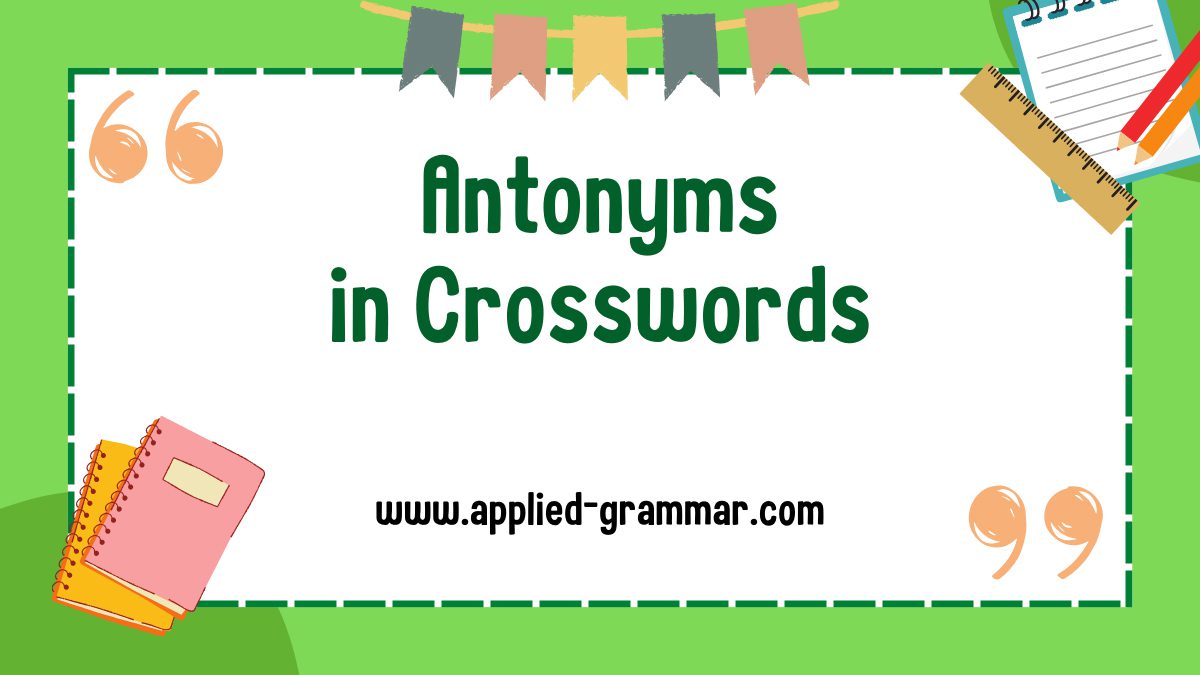Do you want to take your vocabulary skills to the next level? Are you looking for a fun and engaging way to challenge yourself and expand your knowledge of words? Look no further than the world of crosswords and word games! These popular puzzles not only test your ability to find synonyms, but they also provide a unique opportunity to explore the intriguing area of antonyms.
Antonyms, or opposite words, are a crucial part of our language. They help us express contrasting ideas and add depth to our communication. And what better way to learn and remember antonyms than through the exciting world of crosswords and word games? By solving puzzles that require you to find the opposite of a given word, you’ll not only enhance your vocabulary but also sharpen your critical thinking skills.
Key Takeaways
- Antonyms are words that have opposite meanings and are crucial in expressing contrasting ideas and adding depth to communication.
- Crosswords and word games provide a platform to practice and improve vocabulary skills by incorporating antonyms.
- Engaging with antonyms in word games and crosswords enhances language skills, critical thinking, and brain function.
- Challenges in using antonyms in games include limited word choices and crafting effective clues and hints.
- Strategies for incorporating antonyms include utilizing synonyms as clues, creating balanced grids, and varying difficulty levels.
- Including antonyms in crosswords and word games enhances vocabulary skills, improves vocabulary retention, and provides mental stimulation.
What are Antonyms?
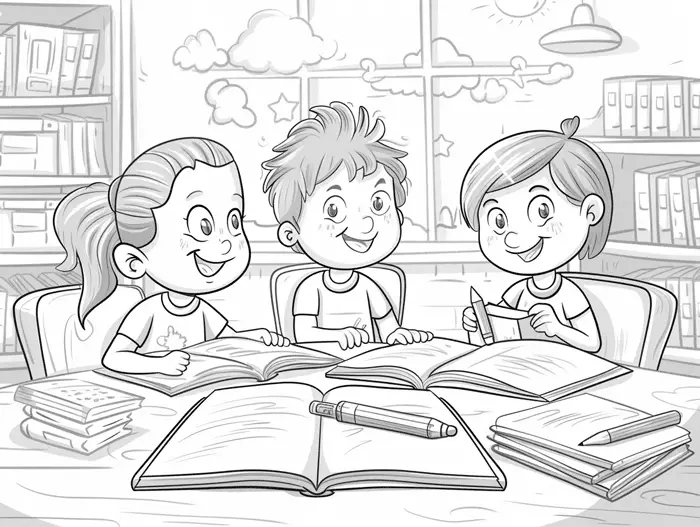
Definition of Antonyms
Antonyms are words that have opposite meanings. They are pairs of words that express contrasting ideas or concepts. For example, hot and cold, big and small, or happy and sad are antonyms. When it comes to language and communication, antonyms play a crucial role in expressing contrasting ideas and adding depth to our conversations and writing.
Importance of Antonyms in Crosswords and Word Games
Crosswords and word games provide an excellent platform for practicing and improving vocabulary skills, and antonyms are an integral part of these language-based challenges. Incorporating antonyms into crossword puzzles and word games helps enhance our understanding and mastery of vocabulary by allowing us to explore the opposite meanings of words.
Here’s why antonyms are important in crosswords and word games:
- Expanding Vocabulary: By encountering antonyms in crosswords and word games, you’ll come across new words and their opposites, helping you expand your vocabulary.
- Critical Thinking: Solving puzzles that require finding the opposite of a given word requires analytical thinking and problem-solving skills. It challenges you to think beyond the surface level and consider different possibilities.
- Language Skills: Engaging with antonyms in word games and crosswords improves your overall language skills, including reading comprehension, writing, and verbal communication. It helps you understand the nuances of language and how words relate to one another.
- Brain Stimulation: Antonyms provide mental stimulation as they require you to think flexibly and make connections between words and their opposites. This type of cognitive activity can improve your memory, concentration, and overall brain function.
Incorporating antonyms in crosswords and word games not only enhances your vocabulary but also sharpens your critical thinking skills and makes learning enjoyable. So the next time you come across a crossword or word game challenge, embrace the opportunity to investigate into the world of antonyms and expand your linguistic horizons.
Challenges in Using Antonyms in Crosswords and Word Games
When it comes to incorporating antonyms into crosswords and word games, there are certain challenges that arise. These challenges can add an extra level of difficulty and excitement to the puzzles. In this section, we’ll explore some of the main challenges you may encounter when using antonyms in these types of games.
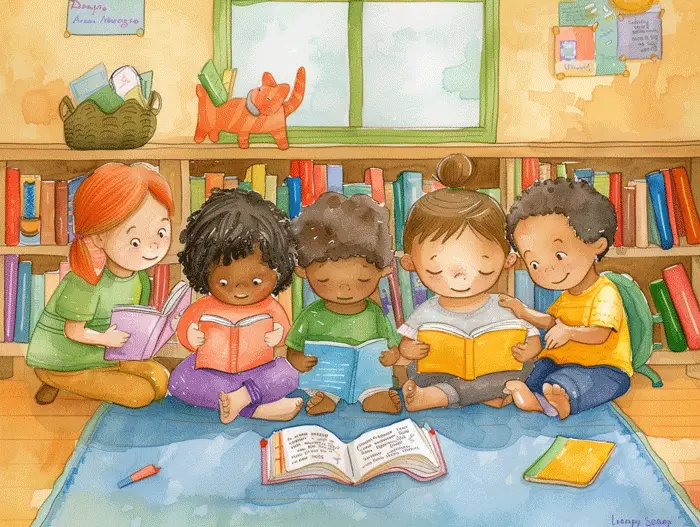
Limited Word Choices
One of the challenges in using antonyms in crosswords and word games is the limited number of word choices available. Antonyms are words with opposite meanings, so finding the right pair of words that fit into the puzzle can be tricky. This requires not only a deep understanding of vocabulary and word meanings but also creative thinking to come up with suitable words that are the exact opposite of each other.
Clues and Hints
Another challenge is creating clues and hints that lead players to the correct antonyms. The clues must be thought-provoking and provide context so that players can make connections between the given word and its opposite. Crafting these clues requires a good understanding of word relationships and the ability to express them in a concise and engaging manner.
To overcome these challenges, players need to sharpen their language skills, critical thinking abilities, and familiarity with a wide range of vocabulary. Embracing the opportunity to solve puzzles that incorporate antonyms can make the learning experience enjoyable while enhancing overall language proficiency.
Strategies for Incorporating Antonyms in Crosswords and Word Games
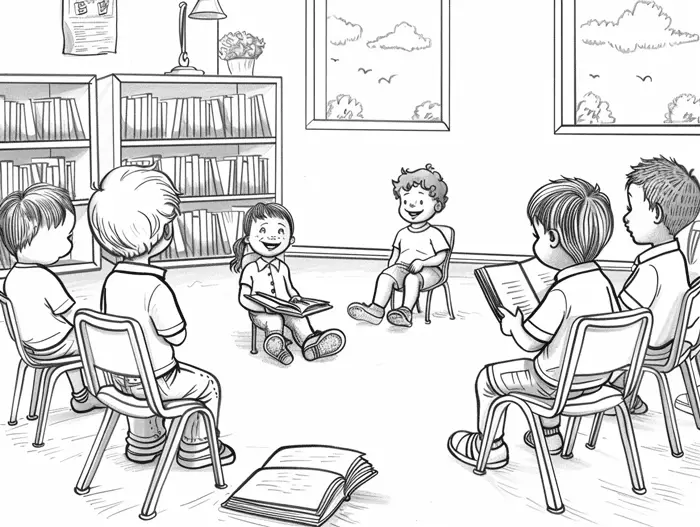
Utilizing Synonyms as Clues
When incorporating antonyms into crosswords and word games, one effective strategy is to use synonyms as clues. By providing synonyms for the opposite word, players can infer the correct antonym and fill in the corresponding spaces. This approach adds an extra layer of challenge and engages players in actively thinking about the opposite meaning of the given word. For example:
- Clue: “Big” – Synonym: “Large”
- Solution: “Small”
By utilizing synonyms as clues, players are able to expand their vocabulary and reinforce their understanding of antonyms while enjoying the puzzle-solving process.
Creating Balanced Grids
Another strategy for incorporating antonyms in crosswords and word games is to create balanced grids. A balanced grid refers to a layout where antonyms are evenly distributed throughout the puzzle. This ensures that players encounter antonyms in various positions and contexts, enhancing their ability to recognize and identify opposite meanings. A balanced grid also adds an element of surprise and complexity to the game, making it more challenging and engaging for players.
By strategically designing crossword grids that incorporate antonyms in a balanced manner, players are exposed to a wide range of vocabulary and are encouraged to think critically and analytically about different word meanings. This approach promotes a deeper understanding of language and expands their overall linguistic proficiency.
Varying Difficulty Levels
Incorporating antonyms in crosswords and word games can be done by varying the difficulty levels. By including a mix of easy, moderate, and challenging clues, players are able to gradually build their skills and knowledge of antonyms. Starting with simpler clues that have more obvious antonyms and gradually progressing to more complex and nuanced pairs, players can develop their ability to recognize and decipher opposing meanings.
Varying the difficulty levels also adds excitement and motivation for players, as they can experience a sense of accomplishment when successfully solving more challenging antonym-based clues. This approach allows players to continue expanding their vocabulary and language skills while providing an enjoyable and engaging experience.
Incorporating antonyms in crosswords and word games not only enhances vocabulary and language skills, but also promotes critical thinking, problem-solving abilities, and brain function. By utilizing synonyms as clues, creating balanced grids, and varying difficulty levels, players can develop a deeper understanding of antonyms and reap the benefits of an enriching and stimulating linguistic experience. So why not jump into the world of antonyms in crosswords and word games and take your language skills to new heights?
Benefits of Including Antonyms in Crosswords and Word Games
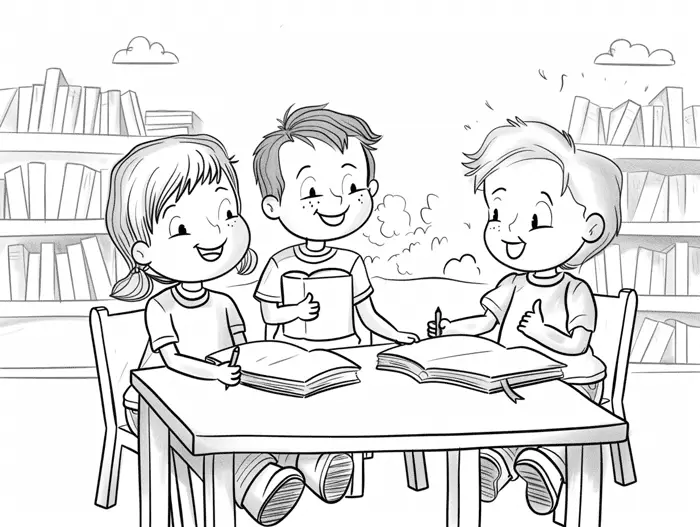
Enhancing Vocabulary Skills
Including antonyms in crosswords and word games offers numerous benefits for individuals looking to enhance their vocabulary skills. Here are some key advantages:
- Expanding Word Knowledge: When solving crossword puzzles or playing word games that incorporate antonyms, you are exposed to a wide range of words and their opposite meanings. This helps you expand your word knowledge and increases the variety of words that you can use in your daily communication.
- Improving Vocabulary Retention: By repeatedly encountering antonyms in crossword puzzles and word games, you reinforce your understanding and retention of these words. This makes it easier to recall and use antonyms correctly in future conversations or written work.
- Developing Synonym-Antonym Relationships: Since antonyms are opposite in meaning to their corresponding synonyms, working with antonyms in puzzles helps you develop a better understanding of word relationships. This knowledge can assist you in making more nuanced word choices and expressing ideas more precisely.
Providing Mental Stimulation
Engaging with antonyms in crosswords and word games not only enhances your vocabulary, but also provides mental stimulation. Here’s how:
- Critical Thinking and Problem-Solving: Solving crossword puzzles and word games that incorporate antonyms requires critical thinking and problem-solving skills. You need to carefully evaluate the clues, analyze the meanings of words, and identify the correct antonyms to fill in the puzzle. This process exercises your brain and enhances your cognitive abilities.
- Language Processing Skills: Incorporating antonyms in puzzles challenges your language processing skills. You need to actively process the clues, analyze the meanings of words, and select the appropriate antonyms. This encourages you to think critically about word meanings and improves your ability to comprehend and interpret language.
- Creativity and Flexibility: Working with antonyms in crosswords and word games encourages creativity and flexible thinking. You need to consider different perspectives and opposite meanings to solve the puzzles. This fosters a creative mindset and enhances your ability to think outside the box.
Incorporating antonyms in crosswords and word games is an effective strategy for enhancing vocabulary skills, promoting critical thinking, and providing mental stimulation. These benefits make it a valuable tool for language learners, students, and anyone looking to broaden their word knowledge and cognitive abilities. So, why not challenge yourself with some antonym-filled puzzles today?
Conclusion
Incorporating antonyms in crosswords and word games challenges with opposites is a beneficial strategy for enhancing your vocabulary skills and mental stimulation. By including antonyms in these games, you can expand your word knowledge, improve vocabulary retention, and develop synonym-antonym relationships.
Not only does playing with antonyms promote critical thinking and problem-solving skills, but it also enhances your language processing abilities. The process of finding and matching opposites requires creativity and flexibility, which further stimulates your cognitive abilities.
Whether you are a language learner, a student, or simply someone who wants to broaden your word knowledge and cognitive abilities, incorporating antonyms in crosswords and word games challenges is a valuable tool. It provides an enjoyable and effective way to strengthen your vocabulary skills while engaging your mind in a fun and stimulating activity.
So, the next time you’re looking for a word game or crossword puzzle challenge, don’t forget to include antonyms. You’ll not only have a great time, but you’ll also be expanding your vocabulary and sharpening your cognitive skills along the way.
